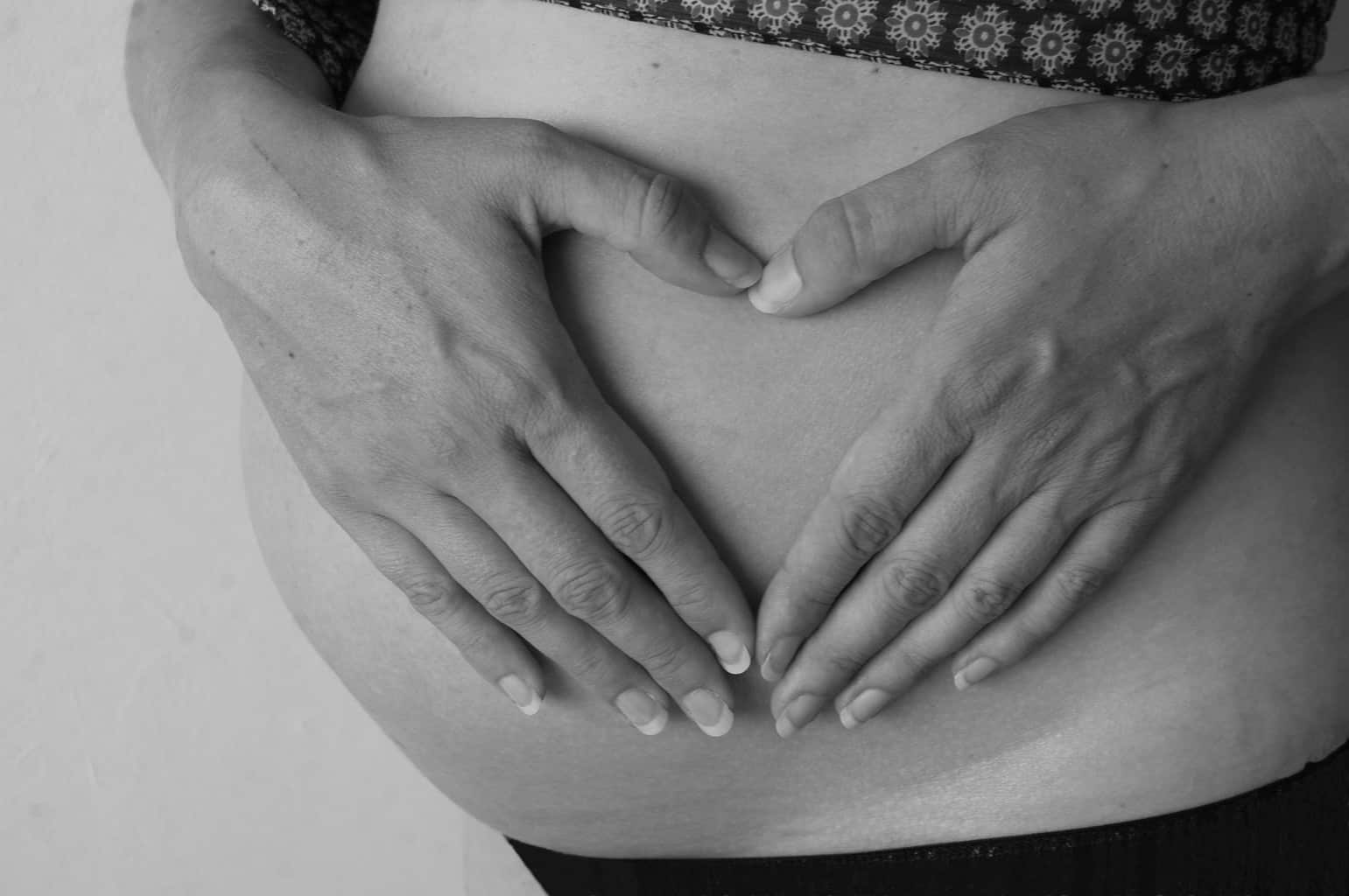- PhentermineLearn more about phentermine and how to get the most from your weight loss journey.
- ResourcesAdditional information and tools to help you make the most of your effort.
- AlternativesLearn more about the most popular weight loss medications and science-backed supplements
Healthy and Balanced Diet During Pregnancy: What You Should Eat
Published on December 11, 2024

When you’re expecting, looking after both you and your little passenger becomes top priority. It’s all about munching more on the wholesome bites and choosing snacks wisely. Your body is on a wild ride of transformations, all thanks to the powerhouse of pregnancy hormones.
These changes impact a pregnant woman’s physical and psychological being. Consuming balanced nutrients assists pregnant women to stay healthy and maintain their emotional wellbeing. If pregnant, women need to have as much support they can get. It allows them to develop a good and healthy lifestyle. Baby growth relies on the mother’s focus to follow a well-defined good diet.
The article below offers insight into the nutrients pregnant women require. Some focus points relate to the diverse fruit groups, types of nutrients, eating plans and weight challenges. It also provides some insight into the use of required fluids and what not to eat. The article aims to provide guidance and general tips for what to do. It becomes important to consult with your medical practitioner to discuss your dietary requirements.
Understand What You Need to Eat
Understanding the different food groups and nutrients becomes important during pregnancy. Pregnant women undertaking research should follow the identified recommendations. Working closely with a doctor and dietician provides the added support a pregnant woman requires, especially during difficult times. Pregnancy presents a happy but challenging time for women. Subsequently, it becomes important to follow a well-defined diet.
Diets comprising good foods and many nutrients allow a person to experience a healthy pregnancy. Recognize and define the different food groups, their contents, and associated nutrients a pregnant woman needs. It becomes important to develop an understanding of seasonal availabilities when purchasing fruits or vegetables.
What a Pregnant Woman Should Eat?
Some fruits and vegetables become difficult to find during the winter or summer months. Adapt your food wishes with seasonal food availability. Discuss with your health practitioner or doctor what you need and when.
Visit a local grocery store and investigate if they offer the food a pregnant woman needs during different seasons. Some smaller grocery stores allow a person to order food beforehand. Using a delivery service can help. Verify with the store manager and place a regular food order when desired. Discuss with your immediate and larger stores. It helps to determine when they stock certain types of food and the quantities thereof.
It becomes difficult if a person struggles to find certain food types to keep your body healthy. Therefore, it becomes important to discuss your food requirements with different grocery shops in your local vicinity.
Online grocery shops can assist, depending on where you are located.
Pregnant Women and Preferred Food Groups
Eating the correct food groups becomes extensively important during the planning of pregnancy meals. For example, good food groups that fall in the protein, calcium, folate and iron classes should form part of a pregnant woman’s diet. Examples of a protein refer to beans, cottage cheese, lean beef or chicken.
Eating from the Legume group allows pregnant women to increase their fiber, protein, iron, and folate. Using sweet potatoes as part of your eating plan increases levels of fiber a person may need to keep regular. In addition, it helps the body to improve during low blood sugar experiences.
Pregnant women who look for anti-oxidant and fewer carb foods, berries seem to offer what you need. Eating oats during pregnancy allows a person to increase their protein levels, much needed during pregnancy. The recommended food includes lentils, peas, beans, soybeans and peanuts (14).
Availability of Diverse Food Groups
Focus on the identification of different food groups available during your pregnancy. The diverse use of special food groups allows your body to adapt easily during pregnancy. The aim of the use of different food groups focuses on supporting you and your developing baby.
Calcium intake
If a pregnant woman wants to increase her calcium levels, the consumption of milk, yogurt, and cheese become important. Liver, dried lentils and dark leave vegetables allow for an increase in folate levels. Iron increases can happen with the use of citrus fruits, dried fruit, or some cereals (1).
The Importance of Vitamin C
Vitamin C intake becomes important during pregnancy and the following food types assist with the upkeep of it:
- Oranges
- Strawberries
- Brussels
- Potatoes
- Peppers (green or red)
The Challenge Around Iron Deficiencies
If a pregnant woman struggles with iron shortages, it may lead to anemia. A sufficient take of iron supplements becomes critical in such an event. Spinach, broccoli, and diverse dark green leaf foods can increase iron intake when required. Prescription by a doctor to use added iron supplements becomes a necessity. If a pregnant woman struggles with iron deficiency, it can become a challenge. The correct iron levels form part of a pregnant woman’s health status, and the maintenance thereof becomes critical.
Eating Plan
The development of an eating plan varies between a person’s medical history and health requirements. To reach a level where a pregnant woman feels comfortable with her eating routine, a basic plan becomes important. The below provides basic eating plan tips that pregnant women can keep to.
Aim to follow a structured eating pattern throughout the day. Include at least 5 portions of fruit and vegetables daily. Starch content food should include whole-wheat pasta or brown rice. Keep starch to a limited level. Added 2 portions of fish a week and many water allows a healthy balanced meal (2). Add 6 portions of enriched whole-wheat cereals or bread with low-fat milk and two or three portions of chicken a week, preferably without the skin. Some cooked peas or dried beans and many water (15).
Fluids a Pregnant Woman can Consume
Use of fluids becomes important during pregnancy, for example
- Water presents the best health care and use thereof must happen throughout the day. Mix water with low sugar fruits, herbs, and diverse mixes (6).
- Low-fat milk offers good levels of calcium and vitamin D, but moderate use becomes critical during pregnancy. Pregnant women can explore the usage of soya or almond milk as alternatives (9).
- Low sugary drinks, for example, some ice teas, allow for the continuous intake of fluids pregnant women needs (6).
- Fresh fruit juice provides a healthy means of increasing your nutrients but requires moderate intake. Avoid overuse of fresh fruits because of a high level of natural sugars evident in the fluids (9).
- Soups during winter times add some additional flavor and nutrition to your day. Focus on soups with healthy contents and stay away from too much MSG type products (6).
Fats Pregnant Women Should Eat
Pregnant women need the consumption of fats to allow the fetus to grow satisfactorily. Some recommended fats include the following (7):
- Canola oil
- Olive oil
- Sunflower seeds
- Peanuts
- Macadamia nuts
- Sesame seeds if not allergic
- Grapeseed
Diverse fat-soluble vitamins allow pregnant women to upkeep their diets. Vitamins A, D, E, as well as K, forms part of the fatty nutrition group and regular use thereof becomes a necessity. In addition, a pregnant person needs to take essential fatty acids, for example, Omega-3 and Omega-6. An example of Omega-3 refers to fish. The regular use of fish oil draws attention from medical experts at various platforms, and use thereof becomes important (8).
Attempt to make use of healthy oils and keep the use thereof to a minimum. It allows pregnant women to stay strong by limiting fat intake to the required contents. Limit fat intake to the planned amount and discuss the quantity of fat use with your dietician.
The Health Behind Nutrients
Pregnant women need to consume micronutrients and macronutrients to stay healthy. Micronutrients refer to vitamins and minerals where macronutrients include carbohydrates, proteins, and fats. Increased macronutrients allow for additional energy a woman requires during pregnancy. Some examples of additional nutrients a pregnant woman should take comprise calcium, folate, and iron (1).
Research showed that babies who received lower dosages of vitamin D struggled with bone growth (3). Using correct nutrients during pregnancy becomes important and regular checks with the doctor become critical. It allows the pregnant woman to discuss her medical history and nutrient shortages she may struggle with. The pregnant woman should address an appropriate diet if she already struggles with nutrient shortages.
More About Supplements Pregnant Women Require
Using supplements becomes important during pregnancy. A pregnant woman needs to increase her nutrient levels and medically approved supplements. Research has shown that vitamin A deficiency allows for a global problem experienced by most pregnant women (11). An extensive portion of pregnant women located worldwide experience nutritional deficiency. An added vitamin A supplement becomes critical during the pregnancy period but should not form part of your daily dosage except if approved by a doctor.
Use of 400 micrograms folic acid daily during the first 12 weeks should increase your pregnancy health. Folic acid can assist with the prevention of birth defects. Some cereals or spreads contain folic acid, for example, margarine.
Pregnant women should take at least 10 micrograms of vitamin D daily. Vitamin D manages calcium and phosphate quantities in a person’s body. It allows for healthy bones, teeth, and muscles (12). Vitamin D can typically occur in red meat, eggs, and oily fish.
Using vitamin C during pregnancy becomes critical.
Prenatal Vitamins
Prenatal vitamins normally contain many nutrients, minerals, folic acid, iron, iodine, and calcium. The intake thereof becomes critical to upkeep pregnant women’s health and the baby’s wellbeing. Prenatal normally refers to the time before the birth of a baby or during pregnancy (13).
Some Food Examples
Sometimes the motivation to eat healthily becomes challenging during pregnancy. Regular and colorful meals must become a priority throughout a pregnancy. For example, mix your day with different food ingredients and recipes. The list below provides some combination of food types a pregnant woman can use to stay healthy.
- Apple and Cinnamon Overnight Oats
- Wrap with some egg
- Salad sandwich
- Chicken salad
- Fruit and yogurt smoothie
- Carrot chips
What Pregnant Women should not Eat
Research has shown that women who read about nutrient intake during pregnancy sometimes avoid taking them (4). Pregnant women, although carefully researched, sometimes withhold themselves from using healthy food. The psychological understanding of the behavior stays minimal. It becomes important to eat what you may need to protect your unborn baby. Many unhealthy foods out there can impact on your baby’s health. According to the Association for American Pregnant Women, the following food types form part of unhealthy dietary options during pregnancy (5) :
- Raw or uncooked meat
- Deli meat
- Fish containing extensive traces of mercury, for example, swordfish
- Smoked seafood
- Raw eggs
- Soft cheeses, for example, Camembert
Pregnant women need to focus on healthy food consumption and prevent eating fast foods. Fast foods contain significant traces of salt, unhealthy fat and oil contents that can harm your baby’s health. Restrain from eating too many carbohydrates associated with bread, pasta, and rice. Abstain from eating cookies, chocolates, sweets, sugary muffins, scones, tarts and cakes that increase weight levels.
As much as you want to feed your unborn baby, prevent eating too much. It allows for additional weight gain that can impact your unborn child’s health.
Drinks Pregnant Women Must Keep Away from
According to nutrition experts, pregnant women should prevent drinking too much coffee or alcohol. Tea contains a level of caffeine as well, and minimal intake thereof becomes important. According to researchers, caffeine can significantly impact reproductive women’s health and children. Limited use of caffeine in drinks or deserts should happen during pregnancy (10).
The American College of Obstetrics and Gynaecology recommends the usage of caffeine by pregnant women to 200 mg/d (10).
Herbs Pregnant Women Should Not Use
Pregnant women must stay away from eating certain herbs that can harm their babies (9). Some herbs refer to:
- Ginseng
- Cohosh
- Juniper
- Mugwort
- Male fern
Difficulties during Pregnancy
As much as pregnant women want to plan their diets and eating plans, they experience difficulties during pregnancy. Especially during the beginning when heartburn and morning sickness becomes a reality, it impacts on the types and quantity of food individuals take. During many circumstances, ladies take a small breakfast and later increase the food during the day
Basically, it becomes important to rather eat a larger healthy breakfast and smaller portions during the evening. An eating plan needs to adjust according to the growth of your baby. If struggling with certain food types, request advice from a health practitioner or a dietician. Pregnant ladies need to receive continuous medical support throughout the dieting challenges experienced.
Attempt Weight Increase
Pregnant women should attempt to maintain their weight. Depending on body size, pregnant women should gain between 20 to 30 pounds. Smaller ladies need to look at weight gain between 30 to 40 pounds. Good and healthy weight allows for the wellbeing of a growing baby. It becomes important to focus on what the growing baby needs to ensure healthy development throughout the pregnancy.
Pregnant women should abstain from overly and unnecessary weight gain. Gaining too much weight can negatively impact the growing baby’s health. Attempt to increase your calories between 2200 to 2400 per day.
Recommended Steps Pregnant Women Should Follow
Pregnant women should focus on a few healthy and balanced diet practical steps. Responsible dieting ensures good health for both the mother and the baby. Some recommended nutrition steps include:
- Visit your doctor and request a dietary recommendation aligned with your medical history
- Book an appointment with a dietician and request preparation of a scheduled diet plan
- Follow your diet plan diligently
- If you experience any changes in health, inform your doctor
- Stay away from no-good foods even if you feel like it
- Prevent from taking food that can impact your baby’s health or growth
- Remember to combine desirable foods with many water
- Focus on low fat and limited sugar intake
- Align your diet with the manner in which your body changes
Conclusion
In summary, pregnant women should look after themselves as much as possible. The initial start of a baby’s growth appears with the mother using healthy food and the application of care when eating. The food contains the nutrients a mother needs during pregnancy. Follow a diet worked out by yourself or a dietician. Include all the food groups a pregnant woman requires in the diet plan and ensure to follow the meal plan diligently. Stay away from sugary foods and drinks. Prevent from taking alcohol and leave your party days behind.
Pregnant women must understand the natural cycle and dietary expectations. Knowing your body allows a person to understand what happens to their baby during the pregnancy. Attempt to undertake research, discuss your experiences with other pregnant women, or join a social group. Align with a support group as much as you can. Various pregnant association groups can help provide dietary advice when needed. In summary, invest in the development of a healthy and balanced diet during pregnancy.
Bibliography
1. https://www.healthline.com/health/pregnancy/nutrition#1
2. https://www.nhs.uk/live-well/eat-well/the-eatwell-guide/
3. https://nutrition.org/new-research-on-diet-and-supplements-during-pregnancy-and-beyond/
4. Anderson A et al. “The influence of dietary advice on nutrient intake during pregnancy”. British Journal of Nutrition , Volume 73, Issue 2 (1995): 163 – 177.https://www.cambridge.org/core/journals/british-journal-of-nutrition/article/influence-of-dietary-advice-on-nutrient-intake-during-pregnancy
5. https://americanpregnancy.org/pregnancy-health/foods-to-avoid-during-pregnancy/
6. https://www.nestle.co.nz/nhw/nutritionlifestage/whenpregnant/whatshouldidrinkwhenpregnant
7. https://www.nestle.co.nz/nhw/nutritionlifestage/whenpregnant/nutritionalneedsduringpregnancy
8. Ramaswami R et al., “Fish Oil Supplementation in Pregnancy”.The New England Journal of Medicine, Volume 375, (2016): 2599 – 2601.https://www.nejm.org/doi/full/10.1056/NEJMclde1614333?downloadfile=showPdf&doi=10.1056/NEJMclde1614333
9. https://www.livestrong.com/article/494906-fluids-liquids-mothers-can-drink-while-pregnant/
10. McGuire S., “Institute of Medicine. 2014. Caffeine in Food and Dietary Supplements: Examining Safety—Workshop Summary. Washington, DC”. Advances in Nutrition, Volume 5, (2014): 585 – 586.https://academic.oup.com/advances/article/5/5/585/4565775?searchresult=1
11. McGuire S., “WHO Guideline: Vitamin A Supplementation in Pregnant Women. Geneva: WHO, 2011; WHO Guideline: Vitamin A Supplementation in Postpartum Women. Geneva: WHO, 2011”.Advances in Nutrition, Volume 3, (2012): 215 – 216.https://academic.oup.com/advances/article/3/2/215/4557946?searchresult=1
12. https://www.nhs.uk/conditions/pregnancy-and-baby/vitamins-minerals-supplements-pregnant/
14. https://www.healthline.com/nutrition/13-foods-to-eat-when-pregnant#section2
15. https://www.webmd.com/women/features/pregnant-daily-diet#1


